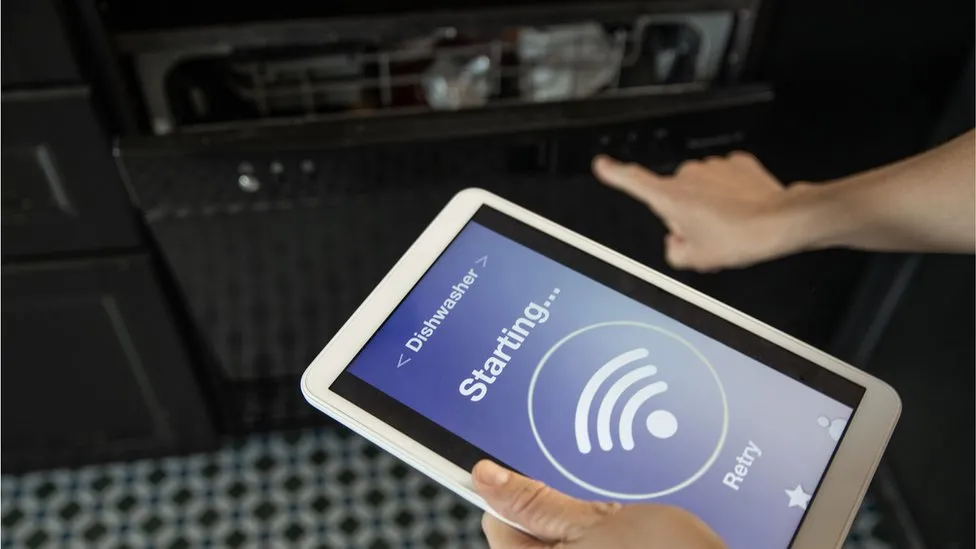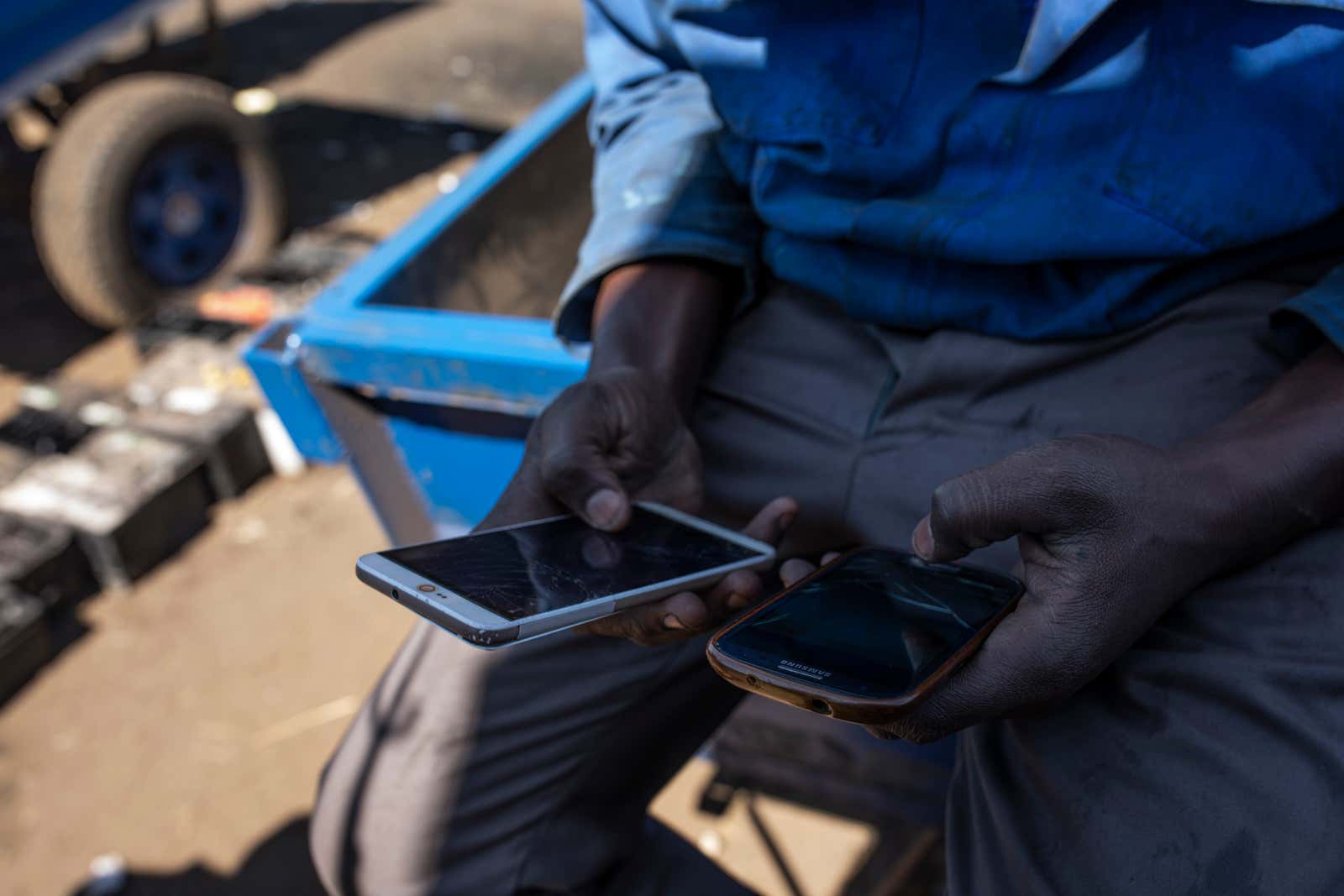Find out the week’s top mobile stories from around the world. Stories this week include… Smart appliances could stop working after two years, says Which? National Crime Agency launches ‘Crypto Cell’ to combat digital assets fraud, Kenyan banks are battling for a share of the mobile money market and much more…

Smart appliances could stop working after two years, says Which?
BBC
Smart appliances could stop working properly after just two years because manufacturers are failing to provide tech updates, according to Which?.
Research by the consumer champion found products like expensive dishwashers, TVs, and washing machines – which might be expected to last more than a decade – are “being abandoned” by brands. A lack of software support from firms means devices do not get updated.
Read more…
National Crime Agency launches ‘Crypto Cell’ to combat digital assets fraud
This is Money
The National Crime Agency has launched a new unit aimed at clamping down on crypto crime amid a surge in digital assets fraud.
A team of five people are being recruited to join a team based within the National Cyber Crime Unit targeting crypto criminals.
In a job advertisement published on the Civil Service Careers website, the NCA said those applying to working in the NCCU ‘Crypto Cell’ must have an extensive knowledge of complex crypto-currency probes.
Kenyan banks are battling for a share of the mobile money market
Quartz
“If you can’t beat them, join them” is the approach traditional banks in Kenya are adopting as they seek a greater slice of the mobile money market dominated by Safaricom’s M-Pesa service.
Because of its widespread adoption by small businesses and individuals in Kenya, Tanzania, Mozambique, DR Congo, Lesotho, Ghana and Egypt, M-Pesa is a dominant player in the African mobile money market.
However, traditional banks in Kenya are now looking to take on the market leader by growing their own mobile money offerings—either by building their own platforms or by building on the back of existing platforms, including M-Pesa itself.
Read more…
India targets China’s dominance in mobile phones
BBC
Buying a new smartphone was a bit of a mission for Deepa Aswani, who works in marketing in Mumbai.
“I am very particular about what phone I buy. I did not want to invest too much,” she says.
After two months of deliberation, she chose the OnePlus 10R, which in a sale cost her $400 (£329), a reasonable price for a smartphone, but still a significant sum in any country, and particularly in a developing one like India. “The idea was to buy a phone which did not make a hole in my pocket and had good features. I am happy with the phone I have purchased,” she says.
Read more…
Pushing Buttons: The true cost of ‘free’ mobile games
Guardian
In the first half of the 2010s, when smartphones became ubiquitous, mobile gaming was exciting new terrain for both developers and players. Here was a new platform, suddenly, in everyone’s pocket, with a touchscreen that was so much easier to use than a controller and a built-in audience of millions. There were new, interesting games – maybe a few quid a throw, so much more affordable – designed to fit into those small gaps in your life, on the train, at the bus stop, on your lunch break (and, let’s not lie, while you’re hiding from your family in the toilet).
Read more…
Metaverse Mobile Games: Everything You Need to Know
IoT For all
There has been a surge in interest due to new developments and the use of VR and AR-based online video games. Metaverse mobile games are transforming the entire gaming cyberspace into an immersive and interactive 3D platform. We will talk about everything you need to know about mobile metaverse games and apps, and what their future looks like. You will pick up the skills you need to understand corporate mobile metaverse games.
The term Metaverse seems to send shivers down everyone’s spine, with it being heralded as the “next step” in the development of the Internet. It has been described as a link between the digital and virtual realms. The creator has no idea of the scope of their new invention’s success. Each passing year will bring dreams closer to fruition. The scope of Metaverse calls on the world’s brightest brains to unite.
Read more…
Mobile Apps In The FMCG Industry: Leveraging The Benefits And Understanding The Challenges
Forbes
The past few years have witnessed a lot of technological alterations in the fast-moving consumer goods (FMCG) industry. Multiple factors have catalyzed these changes over time.
FMCG is a product segment consumed by people daily and multiple times over each day. The industry is set to achieve a valuation of over $15 trillion by 2025. The registered CAGR is 5.4% from 2018 to 2025. At the same time, the Covid-19 pandemic triggered a change in which people are now more reliant on online mediums. According to data from Statista, the online share of the global FMCG market will surge to 10% by 2025 from just 5.1% in 2018.
Asia holds the fort as global mobile spending drops: report
Tech in Asia
While consumers globally spent less money on mobile in 2022 compared to the previous year, some Asian markets are still seeing an increase in spending amid the current economic downturn.
According to Data.ai’s State of Mobile 2023 report, China logged a roughly 2% increase in app spending year over year to US$58.1 billion in 2022.
In terms of consumer spending, China still led globally, followed by the US and Japan. Meanwhile, Taiwan and Hong Kong both saw substantial bumps of 15% and 34%, respectively.












